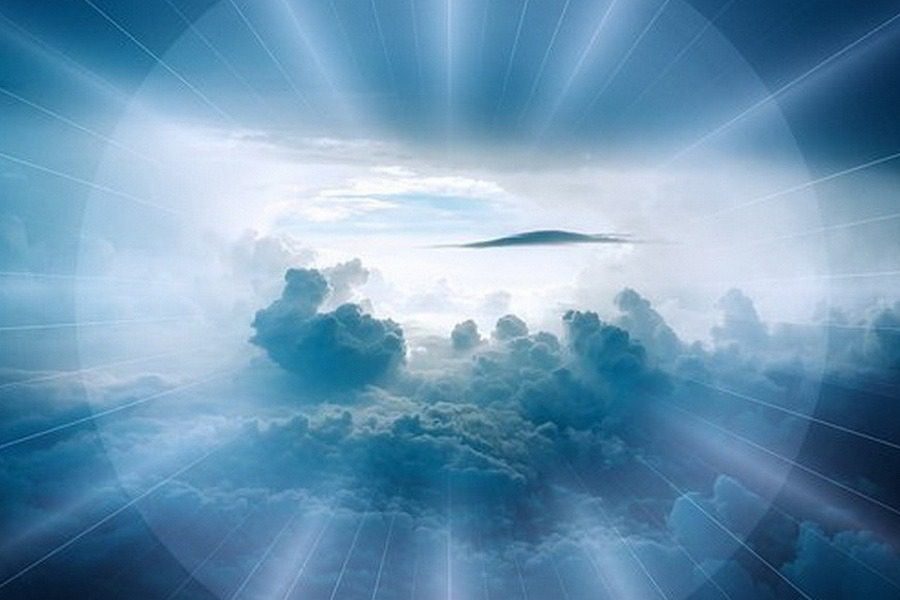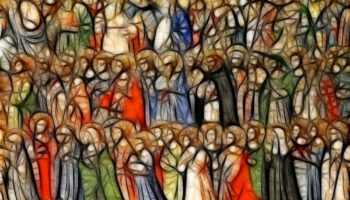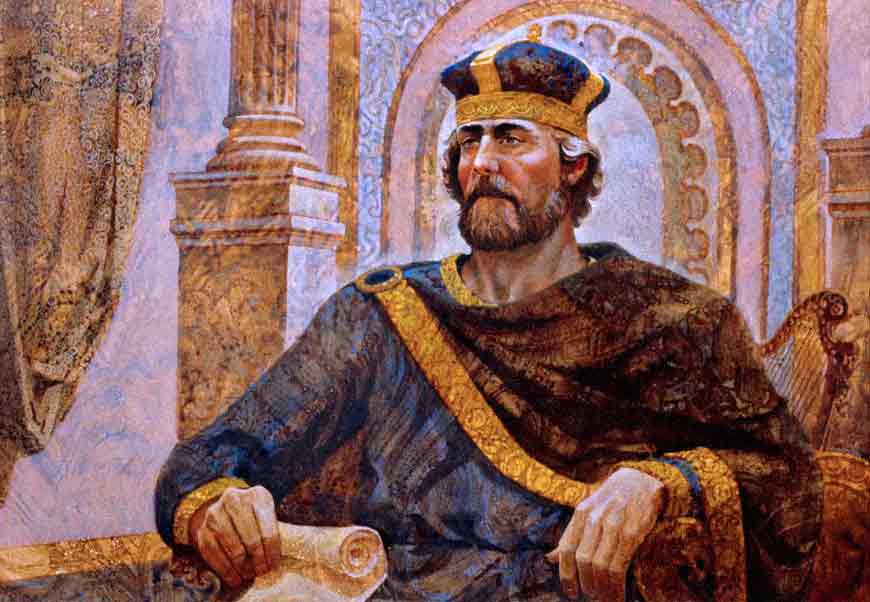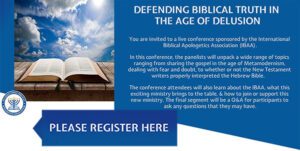
[publishpress_authors_box layout=”boxed” post_id=”2216″]
We are often amazed by the revolutionary changes that are taking place across the world, especially in North America and Europe. To some, they may appear as manifestations of social progress towards universal peace and love. Yet, are they? The fundamental values and morals including family dynamics and sexuality are being challenged and new norms are being set. This phenomenon is evidenced by the recently emerged term, “new normal.” The Bible is frequently viewed as an archaic piece of literature which hinders human freedom and “love” for human diversity. Humanists are claiming the Scripture humiliates personal dignity and must be reinterpreted to fit our western culture. Slogans like “live life your way” and “be your own boss” have become widespread. All these trends have a common denominator. They try to weaken the authority of the God of the Bible and ultimately replace Him with a more convenient alternative – a god who does not dictate his own rules to us but makes us feel like gods setting their own rules. This ideology is not new though. It was planted in the hearts of the first human couple way back in the Garden of Eden by a real, highly intelligent spiritual entity – Satan (translates from Hebrew as “adversary” or “accuser”) (Genesis 3:1–15; 1 John 3:8; Revelation 12:9).
Psalm 2 describes well this God-opposing mindset as it portrays the rulers of the world conspiring against the God of Israel and His Anointed One: “Why do the nations conspire, and the peoples plot in vain? The kings of the earth set themselves, and the rulers take counsel together, against the Lord and his anointed, saying, “Let us burst their bonds asunder, and cast their cords from us” (Psalm 2:1–3). This psalm prophetically unfolds universal resistance to the Lord which has been taking place throughout the history of humankind, including our modern times. Just as in the biblical era, many leaders of our day rebel against the Lord and plot ways to break free from His “uncomfortable yoke.” This means escaping from God’s authority, His Spirit of truth, and His commandments. We know, however, that the efforts of those worldly leaders are miserably futile. Can the clay dictate its rules to the potter? “He who sits in the heavens laughs; the Lord has them in derision. Then He will speak to them in His wrath, and terrify them in His fury, saying, “I have set My king on Zion, My holy hill” (Psalm 2:4–6). As we from this passage, the Lord not only laughs at carnal endeavors, but holds humans accountable for dishonoring and rebelling against the king enthroned on Mt. Zion in Jerusalem. In fact, that king is the One who has been appointed to execute judgement over nations. Now, do we know who the king of Psalm 2 is? Did that king live in the far past in the ancient Near East? Has his influence ceased, being longer relevant to us today?
The writer of Hebrews 1:5 attributes the authorship of Psalm 2 to King David. As said above, according to this psalm, the God of Israel enthrones the king on Mt. Zion who is presented as God’s Anointed One or the Messiah (Hebrew Mashiach) (Psalm 2:2–6). However, there have been differing interpretations of Psalm 2. Some scholars have suggested that the king is King David, and some have argued it is the Davidic Messiah. While it is possible that Psalm 2 speaks of King David, I think it is more likely that it speaks of the Messiah. In verses 7–9, we see that the power and authority possessed by the king (God’s Son) point to his superiority over King David and his descendants: “7 “I will surely tell of the decree of the Lord: He said to Me, ‘You are My Son, Today I have begotten You. 8 ‘Ask of Me, and I will surely give the nations as Your inheritance, and the very ends of the earth as Your possession. 9 ‘You shall break them with a rod of iron, You shall shatter them like earthenware.” The God of Israel never told King David He would grant him universal dominion. On the contrary, the king of Psalm 2 is shown to have unprecedented global power and authority.
In addition, the Hebrew verb יָלַד (yalad) used in verse 7 means to beget. It can also be translated as to bring forth, to bear, to generate, to father, to give birth. Thus, the concept of the “begotten son” does not imply his creation but rather his generation. This means that the begotten son shares the same nature as the father. Since Psalm 2:7 speaks of the God of Israel “begetting” His Son, the King is likely to be a divine Messiah, sharing the essence of God the Father. Interestingly, The Rule of the Congregation from Qumran refers to a messianic figure as being begotten by God (1QS 2:11–12).[1] In the New Testament, “the Son of God” is referred to as the “only begotten Son”: “For God so loved the world that he gave his only begotten (μονογενής = monogenés) Son, so that everyone who believes in him may not perish but may have eternal life” (John 3:16). The Greek word monogenés can be translated as “only-begotten,” “only,” “unique,” “one-and-only,” and “one of its kind.” Neither the Hebrew yalad nor the Greek monogenés suggest “creation” of the son. They rather imply a father-son relationship and point to the uniqueness of the divine Messiah. While Israel, the church, and the heavenly spirits are all called “the sons of God,” the Messiah in Psalm 2 is a unique, “one of a kind” Son (Exodus 4:22; Job 1:6; John 1:12). As the author of Hebrews 1:5 reveals, God’s Son from Psalm 2 is no other than Yeshua (Jesus Christ), whose divine Sonship is unique in its equality with the God of Israel and superiority over any created beings: “For to which of the angels did God ever say, “You are my Son; today I have begotten you”? (Hebrews 1:5; cf. Acts 13:33).
In addition, the meaning of Psalm 2:10–12 has been debated: “10Now therefore, O kings, show discernment; take warning, O judges of the earth. 11 Worship the Lord with reverence and rejoice with trembling. 12Do homage to the Son, that He not become angry, and you perish in the way, for His wrath may soon be kindled. How blessed are all who take refuge in Him!” (Psalm 2:10–12, NASB). Instead of rendering “son” in verse 12, some scholars have translated the Aramaic word בַּר “bar” as “purity.” At the same time, the translation “son” has not been uncommon in the history of Jewish biblical interpretation. Moreover, it has been understood to refer to the Messiah. For instance, the Babylonian Talmud references Psalm 2 as speaking of the Messiah: “Our Rabbis taught, The Holy One, blessed be He, will say to the Messiah, the son of David (May he reveal himself speedily in our days!), ‘Ask of me anything, and I will give it to thee’, as it is said, I will tell of the decree etc. this day have I begotten thee, ask of me and I will give the nations for thy inheritance [Psalms 2:7–8] (Babylonian Talmud, Sukkah 52a). I agree with Dr. Michael Brown that the Aramaic word “bar” in Psalm 2:12, should be translated as an Aramaic “son” instead of the Hebrew “purity.” The reason is that the Aramaic was the language most widely used in the ancient Near East. Hence, the Lord calls the Aramaic-speaking peoples to honor and fear God’s Son[2]. God’s exclusive prerogative, to either bless or destroy, possessed by the Messiah in Psalm 2 indicates that God’s Son is equal to YHWH (the sacred name of the God of Israel) in His divine essence and sovereignty.
Psalm 2 indicates that the enthroned King is the ultimate judge of the world. He is God’s unique, pre-existent Son. I believe that this King is Yeshua of Nazareth (Jesus Christ). Yeshua proclaimed to His fellow Judeans: “For not even the Father judges anyone, but He has given all judgment to the Son, so that all will honor the Son even as they honor the Father. He who does not honor the Son does not honor the Father who sent Him. For just as the Father has life in Himself, even so He gave to the Son also to have life in Himself; and He gave Him authority to execute judgment, because He is the Son of Man” (John 5:22, 23, 26). The rulers of the world are still plotting against God’s Messiah because the sinful nature of humankind hasn’t changed. They are trying to undermine His authority by planting doubts and false ideals in the hearts of others. In our western society, a growing number of Christians are living double lives, deceiving themselves and others. They use God’s grace to cover up and justify their sinful actions. They are striving to break free from God’s dominion by worshiping themselves and making pleasure their road guide. Apostle Peter once described those individuals: “12 But these, like unreasoning animals, born as creatures of instinct to be captured and killed, reviling where they have no knowledge, will in the destruction of those creatures also be destroyed, 13 suffering wrong as the wages of doing wrong. They count it a pleasure to revel in the daytime. They are stains and blemishes, reveling in their deceptions, as they carouse with you, 14 having eyes full of adultery that never cease from sin, enticing unstable souls, having a heart trained in greed, accursed children… 17 These are springs without water and mists driven by a storm, for whom the black darkness has been reserved. 18 For speaking out arrogant words of vanity they entice by fleshly desires, by sensuality, those who barely escape from the ones who live in error, 19 promising them freedom while they themselves are slaves of corruption; for by what a man is overcome, by this he is enslaved” (2 Peter 2:12–14, 17–19). We know that our God is patient and merciful. Yet Scripture reveals that the the King of Psalm 2, Yeshua the Messiah, is the true righteous judge. He punishes those who pervert His Word and create their own laws to live by.
Dear friends, let us follow God’s prescription from Psalm 2 – to honor and worship the God of Israel in all aspects of our lives (Psalm 2:10–12). This task can be accomplished only if we “detox” ourselves from the spiritual pollution of our society – when we let our worldly inner person die on the cross with our King Messiah. This includes our worldview, our habits, values, pattern of thinking, and behavior: “4 Therefore we have been buried with Him through baptism into death, so that as Christ was raised from the dead through the glory of the Father, so we too might walk in newness of life. 5 For if we have become united with Him in the likeness of His death, certainly we shall also be in the likeness of His resurrection, 6 knowing this, that our old self was crucified with Him, in order that our body of sin might be done away with, so that we would no longer be slaves to sin; 7 for he who has died is freed from sin” (Romans 6:4–7). However, we are not alone in this transformation process. It is the Lord who shapes and leads us when we submit ourselves to His righteous authority and follow His instructions. Then, our reverence and worship of the King will be genuine. It will be an expression of our loving intimate relationship with the Lord. The depth and wealth of that relationship are beyond anything this world can offer. It’s no wonder that Psalm 2:12 states: “How blessed are all who take refuge in Him!”
____________________
- Other messianic texts found among the Dead Sea Scrolls include 4Q246 (the Aramaic text “the Son of God”),11Q (the Melchizedek text), and 4Q521 (“The Messianic Apocalypse”). See Scott A. Kohler, “Dead Sea Scrolls: Begotten Messiah Text (1Q28A = 1QSA)”, The Routledge Encyclopedia of the Historical Jesus, 135–6. https://books.google.ca
- Michael Brown, Answering Jewish Objections to Jesus, vol. 3, 111–14.





